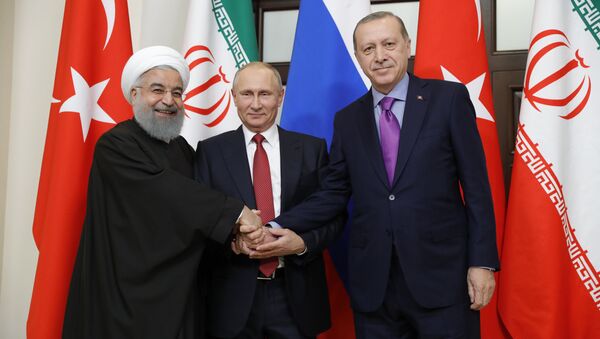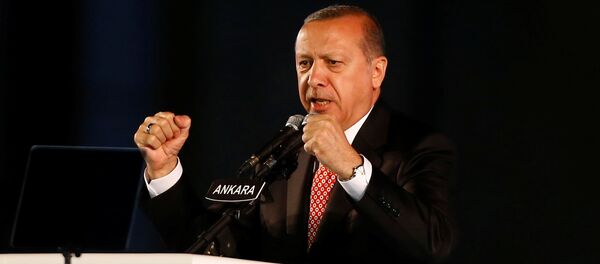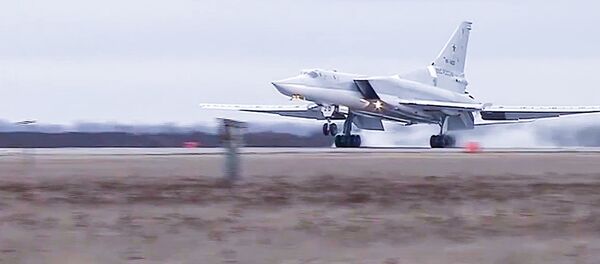In a speech before lawmakers at a meeting of Turkey's ruling Justice and Development Party this week, the Turkish president questioned Washington's true motives, and spoke of a US "plan in relation to Turkey." "Why are weapons being delivered to the region? Where and against whom will the US use them? Against Iran, or against Turkey? Or, if they are daring enough, against Russia?" he asked.
Speaking to Sputnik Turkey about what Erdogan's remarks mean, and what this mysterious US plan for the region may be, Middle East political observer Faik Bulut suggested that Washington's targets include both Turkey and Iran, with the US's main long-term goal being to weaken the latter's position in the region.
"There is no doubt about the existence of an 'American plan', spoken about by president Erdogan, and it doesn't affect just Turkey," Bulut explained. "In my view, the US plan is aimed at the region as a whole. Its main component is the goal of surrounding Iran, with the help of Israel and Saudi Arabia, and forcing Tehran to bow its head."
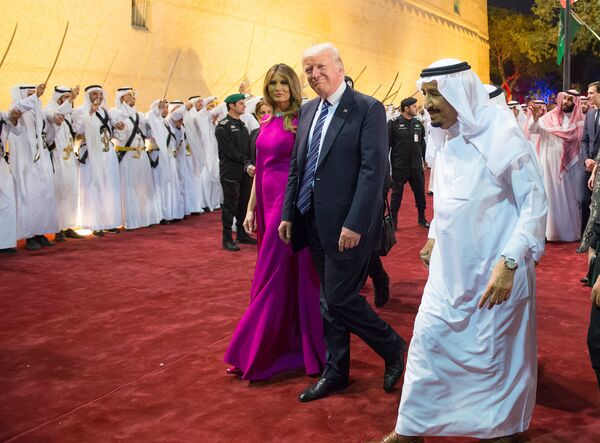
There are several motivations behind this strategy, according to the observer. For example, Washington is and has always been interested in gaining control over the region's energy resources. "Therefore, Washington's actions should be looked at comprehensively, as a reflection of a search for allies and spheres of influence," Bulut said.
As far as the US's continued supply of weapons to Kurdish forces in Syria, the analyst suggested that Washington's efforts are purely tactical, and based on a desire to avoid losing influence.
"It's clear to everyone that Russia has been able to achieve significant successes in the region," Bulut said. "In this connection, the forces that the US supported in every conceivable way have collapsed; the opposition forces supported by Washington lost their position and were forced to retreat. As a consequence, the US has begun a search for a sphere of influence, so as not to be completely ousted from the region. Hence its cooperation with the Syrian Democratic Forces (SDF). However, this is a temporary move. Serious differences of opinion exist between the Pentagon and the State Department on the issue. The latter fears a serious estrangement with Turkey, and Ankara's subsequent rapprochement with Russia. With this in mind, US support for the SDF remains limited to the military sphere."
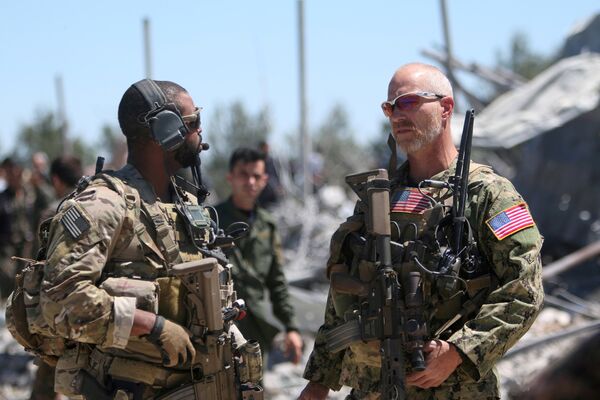
As far as Iran was concerned, the analyst explained that US efforts against that country are part of a broader strategy, namely, against Russia. "If the US were able to weaken Iran's position, they would then seek to encircle Russia from the south," he said.
Asked about Washington's chances of actually achieving its goals it in the region, Bulut suggested that the US's room for maneuver is limited, due to the presence of Russia, as well as a dearth of regional allies with sufficient military muscle, Israel excepted. According to the analyst, Saudi Arabia, notwithstanding its collection of expensive US military hardware, has not managed to achieve victory in Yemen, nor in the diplomatic conflict with Qatar. Egypt, meanwhile, is focused on internal problems. That leaves the SDF, which despite its alliance with the US, "doesn't want to become America's legionnaires, with their main goal being the creation of an autonomy," the analyst said.
Moscow, meanwhile, won't sit idly by either, according to Bulut. "Russia has no intention of giving the Kurds up to the US. President Putin understands that the Kurdish factor cannot be neglected; therefore, his goal is to reconcile Syria's leadership and the Kurds, to distance Turkey from US influence and to promote a dialogue between Ankara and Damascus." At any rate, the observer noted that Washington's position in the Middle East has weakened significantly, and the superpower has been left with very little room for any maneuvers allowing it achieve any substantive diplomatic or geopolitical victories.

For his part, Lt. Gen (ret.) Ismail Hakki Pekin, former head of the intelligence department of the Turkish General Staff, believes that the wrecking of Turkey's relations with Iran and Russia is key to Washington's strategy for the region. Speaking to Sputnik, the officer emphasized that notwithstanding its long-standing alliance with Ankara, US efforts in the Middle East, including northern Iraq and northern Syria, have been to support groups which pose a threat to Turkey.
According to the analyst, the Reza Zarrab case, US arms deliveries to the Kurds and economic measures are all elements of a US attempt to pressure Ankara on its relations with Washington's adversaries. The goal, among other things, is to use Turkey to help reign in Russia in the Black Sea and the Caspian and to surround Iran, while weakening Ankara's position in the Mediterranean and Cyprus.
"To sum up, the US wants a deterioration in Turkish-Iranian and Turkish-Russian relations, and to prevent the future cooperation of these countries with Syrian authorities. This is the US plan for Turkey," Pekin said. As for the Kurds, Washington hopes to use them as a multipurpose tool against Damascus, Ankara, and Tehran, the ex-intelligence officer concluded.
